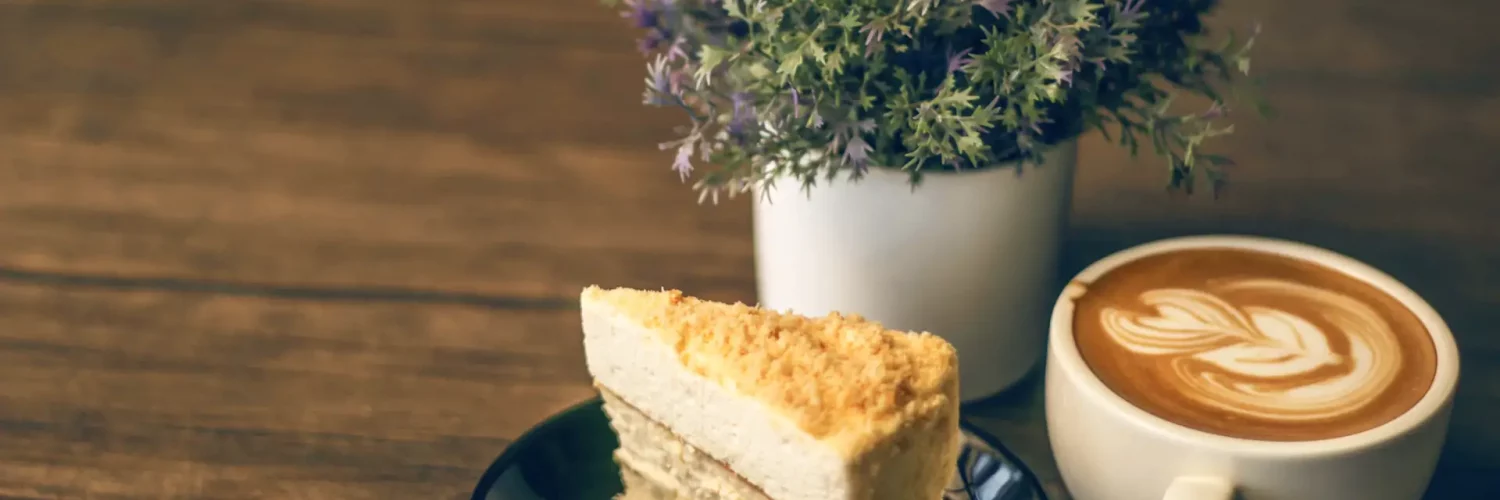Question:
Dear Rabbi Sprung,
This year Asara b’Teves falls on a Friday. Is it Halachically acceptable to break my fast with a light meal of cake and coffee rather than a full Seudas Shabbos?
Answer:
The fast of Asara b’Teves will end at nightfall on Friday night (see Shulchan Aruch and Rema O.C. 249:4). Since the fast ends after Shabbos has begun, one must recite Kiddush before eating or drinking.
People are usually capable of waiting to eat until they return from Shul, especially in the case of Asara b’Teves when Shabbos begins fairly early. However, you find it difficult to break your fast on the Shabbos Seuda and would prefer to break the fast with a light meal and eat the Seudalater.
It is generally accepted to follow the ruling of the Zohar not to eat dairy and meat in the same meal, even if one rinses his mouth after eating dairy (as stated by the Poskim – see Y.D. 89). If so, he cannot make Kiddush, wash Netilas Yadayim, eat bread, and then drink coffee (with milk) since he will not be permitted to continue his fleishig Shabbos meal.
One possibility is to make Kiddush and drink a cup of coffee quickly before beginning the Seuda. However, if you want to relax and take your time over your coffee and cake it seems that your only option is to make Kiddush, have coffee and cake, recite a Bracha Acharona, and then wait [approximately] an hour before starting your Shabbos meal. This would be the preferable course of action for one who finds it difficult to break his fast with the Seudas Shabbos.
An analogous situation often arises on Leil Simchas Torah when many communities have Kiddush and cake before beginning Hakafos. On Shabbos morning most people are lenient and consider their Kiddush with Mezonos as Kiddush b’Makom Seuda (though some are stringent). Does the same apply to Kiddush on Friday night or the night of Yom Tov?
The Shulchan Aruch rules (273:5):
The Gaonim wrote regarding Kiddush b’Makom Seuda: even if a person eats something minimal or drinks a cup of wine that requires a Bracha, he fulfills the obligation of Kiddush b’Makom Seuda and may complete his meal elsewhere. But only if he eats bread or drinks wine; if he eats fruit this does not [suffice].
The Mishna Berura elaborates (ibid. 25-26):
Or drinks wine – a person is certainly Yotzei if he eats pastries [made from] the five species [of grain], for they are more significant in a Shabbos Seuda than wine. But one is not Yotzei b’Makom Seuda with beer and other beverages, even if they are Chamar Medina, since they do not satisfy the heart like wine. See Chiddushei R’ Akiva Eiger and the Tosefes Shabbos[1] who prove that, according to several Rishonim, one is not Yotzei Kiddush b’Makom Seuda with a cup of wine. Hence, it seems that one should only be lenient in a Sha’as haD’chak.
Not fruits – the five species [of grain] are called Mazon and wine satisfies the heart, but other things are not considered a Seuda at all even if he eats a large amount. Therefore, one should not eat anything during the customary visits to a Chasan’s home or a Bris Mila where they only serve delicacies after Kiddush [without Mezonos]…
It is clear from the Mishna Berura that Mezonos baked goods are considered Kiddush b’Makom Seuda even if they are not bread products. However, the Biur Halacha cautions: “The Sefer Ma’ase Rav states that even for the Kiddush of Shabbos day the Gra would only make Kiddush with a real Seuda; not on pastries or wine.” In line with this practice of the Gra (Ma’ase Rav, Hilchos Shabbos 122), the Machmirim only eat bread after Kiddush, even in the morning when Kiddush is mid’Rabbanan. Presumably, they would certainly be stringent for the night Kiddush.
The Mishna Berura cites a Machlokes if a single Revi’is of wine is sufficient to be considered Kiddush b’Makom Seuda or if an additional Revi’is is necessary to meet this requirement. As mentioned above, R’ Akiva Eiger and the Tosefes Shabbos do not permit fulfilling Kiddush b’Makom Seuda with wine at all, and the Mishna Berura concludes that it should only be used in a Sha’as haD’chak. The Mishna Berura does not make similar comments about Mezonos.[2]
The Biur Halacha (249:2) cites the Or Zarua’s opinion that it is a Mitzvah to eat the Seudas Shabbos with an appetite. Therefore, since bread constitutes the primary part of a meal, a person may not eat “chremzel” on Shabbos morning before his Seuda as he will not have an appetite for bread. He mentions that the Darchei Moshe disagrees with this ruling and that the Magen Avraham agrees with it. He continues:
In our areas where we do not wash Netilas Yadayim before Kiddush, the Minhag is to be lenient in the morning following the Darchei Moshe and to eat Mezonos after Kiddush before the meal. See the Shulchan Aruch haRav who upholds the Minhag and rules that one should not protest those who are lenient. Nevertheless, some pious men are stringent when possible following the Magen Avraham. Thus, immediately after Kiddush they wash their hands, make a Bracha over bread, and eat everything within the meal. The Sefer Shulchan Atzei Shittim states likewise. At any rate, everyone agrees that it is correct not to fill one’s stomach with other foods before the bread meal.
This implies that the only concern about eating Mezonos after Kiddush is that it will ruin the appetite for the Seuda, not that it does not fulfill Kiddush b’Makom Seuda. However, a person should take care not to eat too much.
R’ Yehuda Aryeh Dunner rules likewise in the name of R’ Chaim Kanievsky zt”l, asserting that, if necessary, a person may make Kiddush on cake and afterward eat his bread meal.
The Shulchan Shlomo (273, p245 in the footnote) states:
Regarding whether a person who made Kiddush and ate Mezonos must repeat Kiddush before the Seuda, Maran zt”l replied that we are not concerned for the opinion of the Gra, cited by the Biur Halacha (s.v. “Kasvu haGeonim”), who would only make Kiddush in the day in a real Makom Seuda but not on pastries. Hence, one need not make Kiddush again before the Seuda. However, in his later years, Maran replied to a different person that although we do not follow the view that Kiddush b’Makom Seuda can only be fulfilled with bread, it is nevertheless fitting that a person who makes Kiddush and eats Mezonos should repeat Kiddush before the Seuda. This is because the primary enactment was to have a meal over wine. He added that, in such a case, a person need not recite the Pesukim that people usually say before Kiddusha Rabba. He is also not required to make the Kiddush before the Seuda; rather, immediately upon beginning the meal he may recite Borei Pri haGafen so that the primary Kevius of the Seuda will be over wine. He added that this is his Minhag.
In conclusion, the Mishna Berura seems to permit a person to make Kiddush on wine, have coffee and cake, make a Bracha Acharona, wash his hands, and eat his Seuda, provided he does not eat so much that he will ruin his appetite. However, the Gra is stringent, and some follow his opinion, including R’ Shlomo Zalman Auerbach in his later years.
Therefore, a person may be lenient and follow the basic Halacha, though it is praiseworthy to be stringent (in which case he may follow Rav Shlomo Zalman’s advice, above).
[1] R’ Refoel Meisels zt”l (c. 1696-1777), Av Beis Din of Parychy, Belarus.
[2] The Shemiras Shabbos Kehilchasa also rules like the Mishna Berura (54:22-23).










Add comment